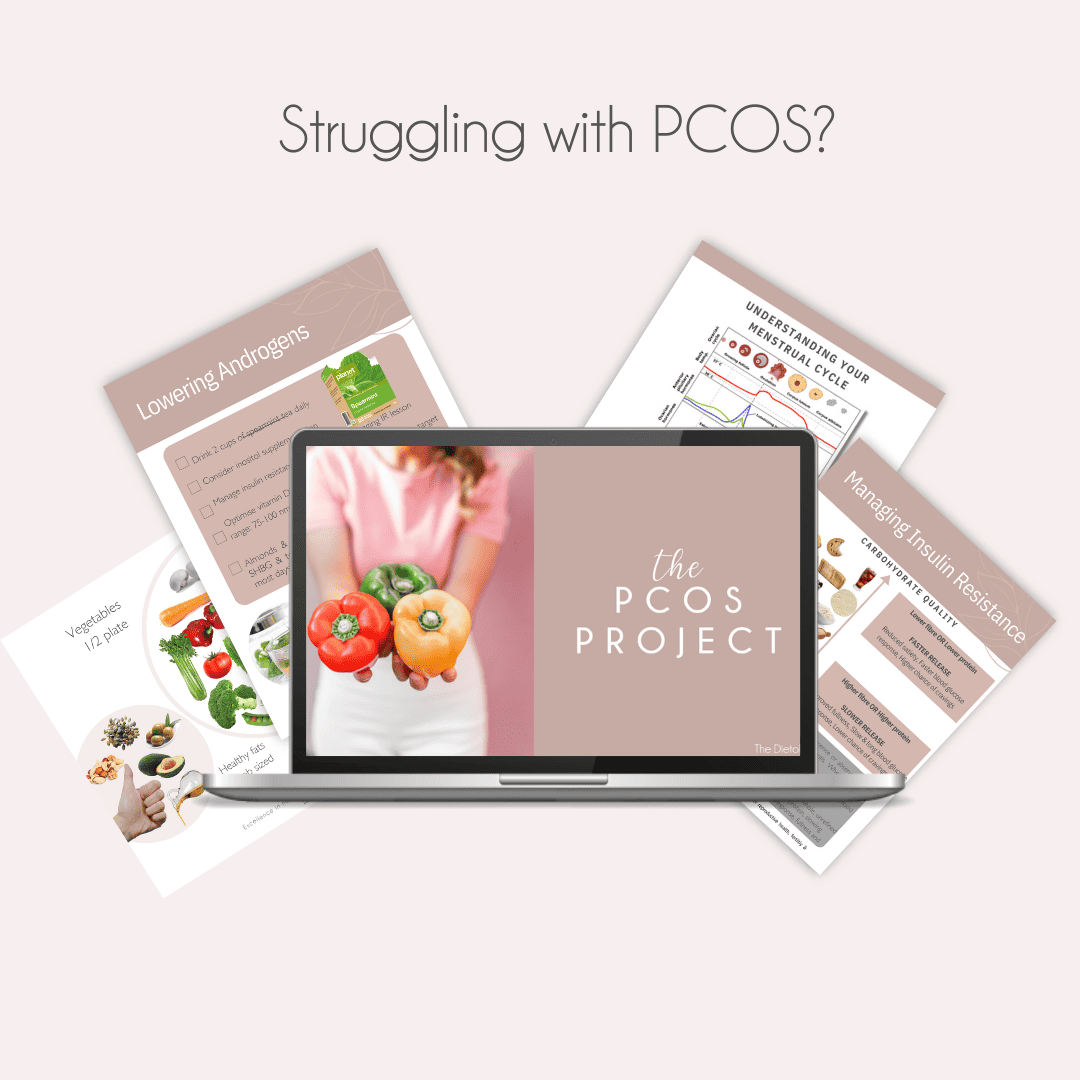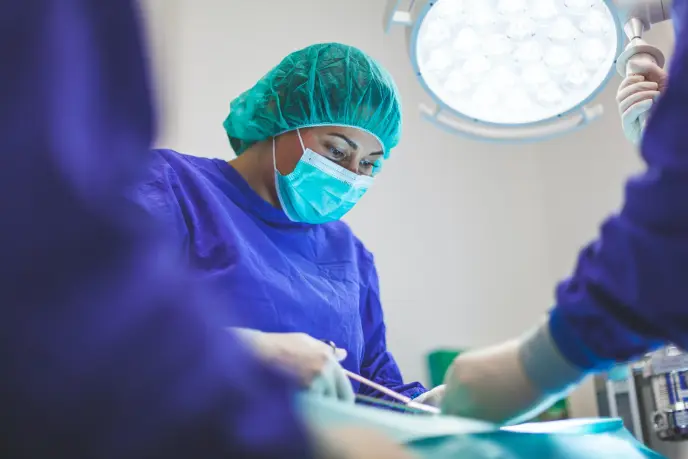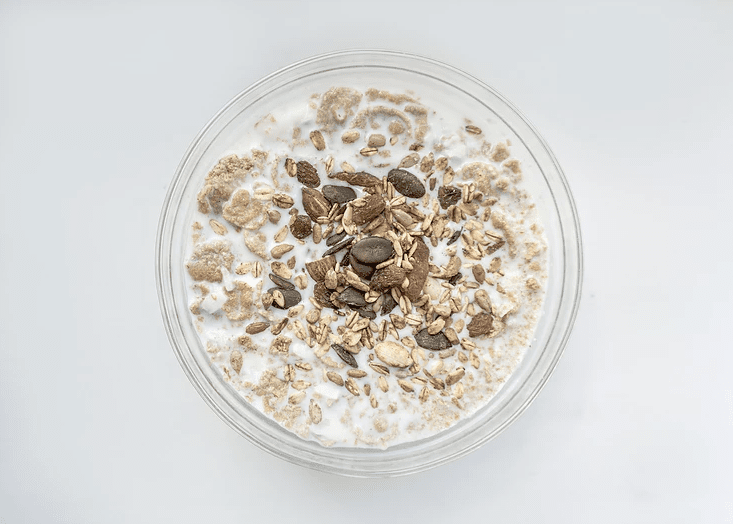Polycystic ovarian syndrome (PCOS) affects around 10% of women of reproductive age around the world (Malik et. al, 2012). This endocrine condition impacts the hormonal system, leading to enlarged ovaries often with small “cysts” on them, and is often accompanied by symptoms such as irregular menstrual cycles, unwanted hair growth, weight gain, acne, reduced fertility and metabolic issues such as high cholesterol (Malik et. al, 2012).
Read how to combat hair growth with PCOS here.

Many women diagnosed with PCOS struggle with the weight gain aspect of this condition, with the hormonal imbalances, insulin resistance and inflammation caused by PCOS making it easy to gain weight, and very challenging to lose it (Groves, 2019).
It is important to note that not all diagnosed with PCOS have trouble with weight, and each and every woman with PCOS is truly unique!
This blog is for informational purposes only, if you feel this is or isn’t a great option for you, that is A-okay! You are welcome and encouraged to explore other options with your team including your dietitian too to help better manage your PCOS without surgery.
Weight Loss Surgery
Many women struggle with the weight gain associated with PCOS, as it often leads to body image concerns, gynaecological or reproductive issues, and even metabolic issues such as type 2 diabetes (Malik et. al, 2012).
Obesity is actually extremely common in PCOS women with almost 60% of PCOS women having a weight that falls into a category classified as obesity (Malik et. al, 2012).
One of the options for women to consider to help reverse this weight gain is bariatric surgery. This is often considered after attempt after attempt of weight loss efforts with diet, lifestyle, sometimes even medications, which is often when people turn to surgery as an option upon the advice of their medical team.
There are certain medical and other criteria that need to be met to be considered for bariatric surgery, make sure you book in a consult with a trusted weight loss surgeon or your GP to discuss your options.
While weight loss surgery has been around for decades, the surgical options continue to become safer and less invasive, and are now mostly performed laparoscopically (involving small incisions in the abdomen with help from a camera) (Malik et. al, 2012).
The three most common procedures are:
- Laparoscopic adjustable gastric banding (LAGB), which involves putting a band around your upper stomach to limit the amount of food you can eat and make you feel full after smaller amounts (Malik et. al, 2012). Fondly known as the “lap-band” surgery, this surgery can be reversed if needed.
- Laparoscopic roux-en-Y gastric bypass (LRYGB), where the stomach is divided into a small upper pouch and larger lower pouch, and the small intestine is rearranged to connect both. Food enters the small point and then is directly transported to the small intestine, leading to reduced absorption of food – especially of fats and starches (Malik et. al, 2012).
- Laparoscopic sleeve gastrectomy (LSG), where a part of your stomach called the fundus is removed, making your stomach much smaller so you feel full quickly and eat less. The fundus is also responsible for producing your hunger hormone (ghrelin) so the surgery may help to decrease hunger too (Malik et. al, 2012).
So is bariatric surgery a good option if you’re struggling with excessive weight gain due to PCOS?
Benefits of Bariatric Surgery
1. Weight loss
While diet, exercise and lifestyle modifications are the first step for losing weight in overweight women, many studies have found that losing above 10 kg of excess body weight is extremely difficult (Malik et. al, 2012).
Read more about dietary management of PCOS here.
A review in 2009 showed people with significantly high BMIs (greater than 30) saw much greater weight loss results from bariatric surgery than people who opted for non-surgical intervention (Malik et. al, 2012). The different surgical options had different results, with both LRYGB and LSG achieving greater weight loss than LAGB. Across all three procedures, weight loss increased year-on-year in each of the first three years post-operation (Malik et. al, 2012).
As a result of this weight loss, people who had bariatric surgery experienced significant improvements in emotional state, body image and quality of life (Malik et. al, 2012).

2. Fertility Outcomes
Research has shown bariatric surgery can have reproductive benefits in PCOS patients (Malik et. al, 2012). It can improve pregnancy and fertility outcomes, and help restore the function of the hypothalamic-pituitary-adrenal axis (HPA axis).
The HPA axis consists of the hypothalamus, the pituitary gland, and the adrenal glands, and plays a vital role in hormonal balance and regulation, thyroid function, adrenal glands (and the production of stress hormones), and reproductive organs. It also influences growth, production of milk, and autonomic nervous system function. Women with PCOS can restore this function after bariatric surgery (Malik et. al, 2012).
Many women with PCOS also regained a regular period after surgery (Li et. al, 2019), as well as improvement in some of the key hormone markersincluding LH, FSH and progesterone, and lowering of androgens (Li et. al, 2019) (Butterworth et. al, 2016). These factors are all important when it comes to optimising your chances of conceiving.

Want to take charge of your PCOS symptoms?
Learn key dietary and lifestyle strategies to tackle PCOS
Mangange insulin resistance, reduce pesky acne and chin hairs, and regulate your period!
100% Online Course designed by an expert PCOS dietitian and nutritionist

3. Metabolic improvements
Bariatric surgery can prevent or reverse metabolic syndrome in women with PCOS (Malik et. al, 2012). It can help to reduce the risk of cardiovascular conditions, insulin resistance, glucose abnormalities, hypertension, and diabetes (Butterworth et. al, 2016). This means it can be extremely beneficial for women with PCOS, with fasting glucose and insulin resistance able to improve very quickly post-surgery in pre-menopausal women (Malik et. al, 2012).

Risks of Bariatric Surgery
Bariatric surgery can have some long-term complications, with some procedures actually failing to achieve weight loss, or requiring reoperation down the track (Malik et. al, 2012). As the surgery continues to advance, the risks decrease, with the risk of bleeding and death now being extremely low.
Getting a good assessment with a dietitian and a psychologist before surgery is a critical step, after all, surgery is treating some of the physical challenges associated with weight loss with PCOS where the metabolism has changed, is the fact that many people struggle with disordered eating whether that be bingeing and restricting or other yo-yo diets, getting on top of these issues first and foremost is critical before moving forward with bariatric surgery.
The risk that I see a lot of in my practice, is those who don’t quite grasp the aftercare process of weight loss surgery when it comes to lifestyle ESPECIALLY if you want to become pregnant in the year or years to follow, getting regular blood tests, taking a quality multi-vitamin or prenatal supplement and how to maintain healthy habits for the long run during this important time.
Working with a dietitian here is absolutely key! If you feel like you need further input on this, reach out and chat to a dietitian who knows about bariatric surgery, PCOS and fertility nutrition too.
The Takeaway…
Bariatric surgery can be considered as part of an effective treatment plan for women with PCOS, with many women experiencing improvements in hormonal balance, menstrual cycle irregularity, weight balance and fertility – key concerns accompanying PCOS. However, further research is needed to confirm if the effects of bariatric surgery on fertility and other PCOS symptoms are the same as non-surgical weight loss methods (Butterworth et. al, 2016).
What is critical is working with a dietitian before and after your surgery as risks of nutrient deficiencies are increased which must be considered if you’re planning for a pregnancy anytime after weight loss surgery.

Introducing…The PCOS Project

This self-paced online course has been developed to highlight the role of diet and nutrition in managing your PCOS symptoms and taking control of the rollercoaster that is PCOS with 10 comprehensive PCOS-specific nutrition lessons. We also include BONUS PCOS-friendly 7-day meal plans and recipes! Check it out ?

What you’ll get inside The PCOS Project:
- Over 10 comprehensive PCOS-specific nutrition lessons designed & delivered by expert reproductive health dietitian & nutritionist
- Learn exactly what bloodwork you need to monitor your PCOS today and in the long-term too!
- Take control of insulin resistance and stubborn weight using the insulin resistance lesson & comprehensive workbook
- Our strategies to lower androgens driving those pesky pimples & chin hairs!
- Understand your menstrual cycle, the ways you can track it, what the “red flags” are for more help and how to nourish yourself for more regular periods!
- PLUS: supplementation considerations for PCOS (note: does not include personalised supplementary advice), mood & food for mental health, anti-inflammatory eating for PCOS, optimising gut health & how to build a PCOS-friendly meal
BONUS: PCOS-friendly done-for-you 7-day meal plans with recipes AND additional recipe resources!
You will get 2 YEARS to access this incredible VAULT of expertly crafted & delivered PCOS education.
This blog was co-written by Emily Smith, a Nutrition and Dietetics student at The University of Sydney. You can find Emily on Instagram @emilygracehealth and on LinkedIn.







